
Going against the grain with chamber opera
An evening of opera with a full symphony orchestra in the pit can easily cost several hundreds thousands of euros. Opera houses often play it safe and present the well-established masterpieces. When a composer is commissioned to write a new opera, it is usually a music theatre piece of modest size. Chamber opera is flourishing in new music. René van Peer spoke to a number of composers about their chamber operas. Some of them dream of a large, full-length production, while others prefer smaller scale opera.
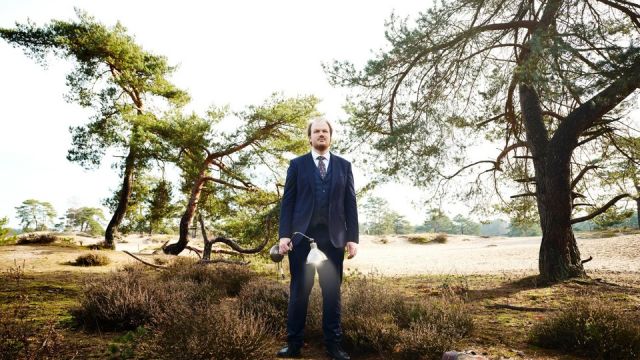
The smaller, the more flexible
“It would be cool to be able to write a large opera one day,” says Jan-Peter de Graaff. The composer from The Hague has a good relationship with Opera Zuid. In 2018, he premiered De Grens with this company, about the German Kaiser Wilhelm II, who fled to the Netherlands at the end of the First World War and was trapped for a day near the border town of Eijsden. An impressive 45-minute chamber opera in which Eva Kroon sings the role of the Kaiser. The cast consists of five musicians. During the first closure in 2020, he created Bonsai Garden for Opera Zuid: eight tiny operas - less than five minutes each - with one singer and one instrumentalist. This was followed a year later by Parallax, in which singer Katrien Baerts defends the flat-earth theory with a series of thought-provoking performances.
An exciting concept, says De Graaff. “It takes a lot of creativity to theorise such a fallacy, similar to the attempts to explain the orbits of the planets when people still thought the Earth was the centre of the solar system. The nice thing was that after a performance at the Bonnefanten Museum, two people came up to me and said they had been momentarily convinced by Baert’s story. As a composer, I don’t really do anything else. I build whole structures on a system that could be shoveled under in an instant”.
De Graaff is a hard worker. He has many projects in development, although he is taking it easy for a while. “That is not necessarily unhealthy. I am now working on a few bigger jobs that I can take my time on. That helps the quality. There is also a small production with the Nationale Reisopera in the offing. You have to be realistic. The only organisation in the Netherlands where it is possible to develop a large-scale opera production without taking a great deal of financial risk is the Nationale Opera. It would be nice to get a commission from them, but I don’t see that happening right now.”
“The advantage of a chamber opera is that the smaller budget makes it easier to tour. The smaller the production, the more flexible it is. Another advantage of chamber operas is that they are more intimate. They are often performed in flat-floor theatres, with the musicians on stage rather than in an orchestra pit, so that everyone on stage can interact with the audience in the hall. The musicians themselves are the audience I write for. If it’s good music, they put their feelings into it and can take the people in the audience with them. It’s great that Opera Zuid wanted to present my work. New music is not one of their core objectives, and their budget is far too tight”.
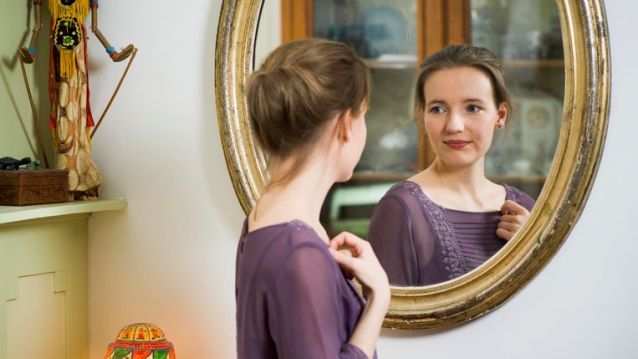
“I want to continue to grow”
Mathilde Wantenaar is also aware that it is more realistic to produce operas on a small scale. Last year, Dear Professor Einstein was premiered at the SNAAR festival in Tivoli-Vredenburg. “It is now twenty-five minutes long, performed by the Netherlands Chamber Choir and a small ensemble consisting of a string trio, a percussionist and a bassist. I would like to expand it into a full-length work. I love writing music of different sizes, from solo instruments to large orchestras. But it is difficult to get large productions performed. It is expensive, also because you have to deal with different disciplines.”
In 2020 she wrote Lied voor de Maan, based on a text by Toon Tellegen. Also on a small scale, with five musicians and six singers. “I enjoyed that. I loved writing it. I will definitely write another opera for a smaller cast, but I also have the ambition to think bigger. I want to keep growing. On the other hand, I think within the limits of what is possible. I am not a diva composer who wants something to be performed the way I imagine it, even if it is not practical. If there was an infinite amount of money, many wonderful operas could be written. On the other hand, bigger is not always better”.
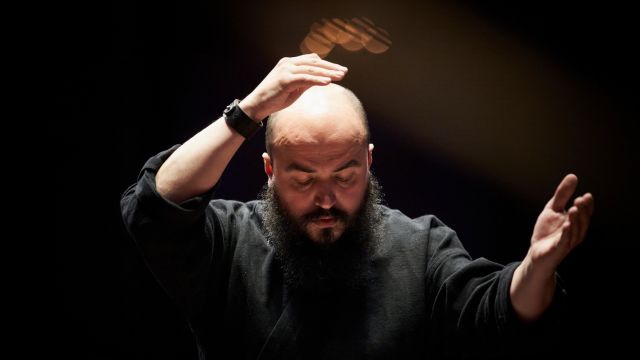
The healing power of simple lyrics and melodies
Ukrainian composer Maxim Shalygin is in the middle of writing his first opera, Amandante. He is two-thirds of the way through the one-and-a-half hour chamber opera. He is also working on Delirium for four pianos, the fourth in his S I M I L A R series, each for ensembles of the same instruments. The new piece will be premiered at the Minimal Music Festival in the Muziekgebouw aan ‘t IJ on 16 April. Amandante, which is based on Plato’s dialogue Symposium, should be completed before the summer. Supported by the Performing Arts Fund and funds in Ukraine, it was to have premiered in Kiev in September and then toured the country. These performances were cancelled because of the war. The musicians have spread out all over the world. “The idea is to have the first performance in Athens,” says Shalygin. “That would be very appropriate, given the origin of the text. But it hasn’t been confirmed yet. I don’t worry about that. I am much too busy with my work.”
The plan for this opera around Plato’s text was born two years ago. It was clear from the start that the Symposium, an exchange of ideas between seven historical characters at a drinking banquet, would be the starting point for a new libretto with contemporary elements. Written by Paul van der Woerd, it also features women. Amandante may be Shalygin’s first opera, but he has extensive experience of writing for voice. “I have written a lot for voice, accompanied by piano or string orchestra. But with opera you have to think in larger structures. The biggest challenge is that there are nine characters in the piece, and in the ensemble there are only four singers, two sopranos and two basses. The instrumentation is four strings and a piano. In order to distinguish the characters, I have to work with colouring in the music, which is different for each character. The women also form a chorus, commenting on the action in the classical Greek sense.”
As an emerging composer, Shalygin had already decided to write an opera one day, although he was ambivalent about the genre. “What appeals to me is that you play with characters. They are unpredictable, they evolve. In fact, the characters dictate the music and give you ideas that you wouldn’t have had otherwise. It gives me an unexpected freedom as a composer. On the other hand, opera in general puts too much emphasis on theatre, whereas for me the melody comes first. I draw on a tradition of simple texts and melodies. I find that these have a healing effect on the mind and soul”.
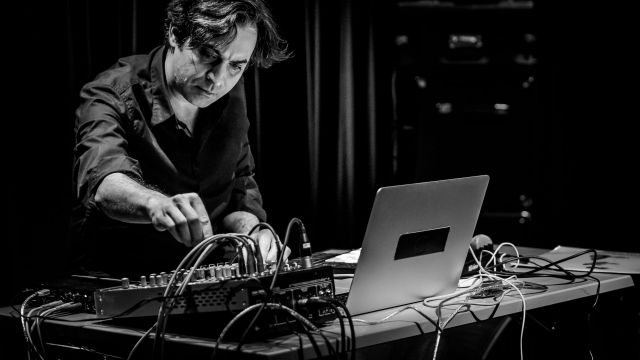
Moving beyond the narrative discourse
Many of Yannis Kyriakides’ compositions revolve around text, around language. He prefers not to classify them as opera. “Perhaps Ocean of Rain from 2009 comes closest, because of my theatrical treatment of the characters. But it received mostly negative reviews in the UK. People there are used to the work of Benjamin Britten. My work is more abstract. I had incorporated electronics.”
“You could say that Dreams of the Blind, in which blind people describe their dreams, is related to early opera because the arias interpret people’s inner thoughts. Face takes the form of a video essay. The text influences how you experience the sound, the music. It is musical theatre, but you are listening to inner monologues.”
“There is no theatrical narrative arc in my work. It has always moved in much less defined genres, multimedia theatre, musical theatre. I don’t want to use the word ‘opera’ anymore. It has too many cultural connotations. It creates expectations in terms of form and elaboration of what an opera should be. And that is what the work is judged by.”
“The same goes for chamber operas. They also conform to the definition that comes from classical music: the idea that everything is focused on conveying the text in the libretto. The singing, the acting, the sets. In my work, and in the work of others, the visual media can function independently of the text. The text can be sung and spoken. As in Einstein on the Beach, where music, dance, set and text all went their own way. Similarly, my own Lunch Music was a hybrid of dance and musical theatre. By interspersing Burroughs’s texts, it gave the feeling of stepping into the writer’s mind and world. These days I find it exciting to work with open forms. I’ve already done this for Maze, the company I’m part of. I like to think of my work as an invitation to perform it in an unconventional way. In this way I hand over the creativity to the musicians. This is a far cry from the established view of opera”.
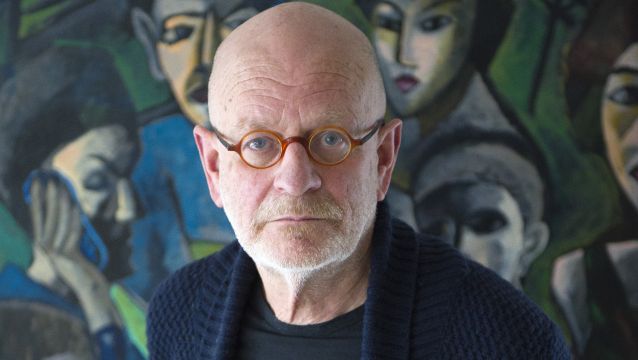
A struggle to sell performances
Some composers have taken the initiative themselves to set up a chamber opera company. Klaas de Vries, together with mezzo-soprano Gerrie de Vries, founded De Helling in 2005. Gerrie de Vries sang in all the productions. Klaas de Vries initiated, advised and composed some of the pieces, including Honderd nachten, honderd jaren, inspired by Japanese Nōh theatre and performed in churches. De Helling also produced his own version of Schubert’s Winterreise, in which Klaas de Vries changed the order of the songs. Last year, De Helling came to an end.
“De Helling was not a company,” says Klaas de Vries. “We always worked with different people. Each performance had its own identity. We made Winterreise into an existential piece. The hurdy gurdy man (Der Leierman) is always present. We had projections of a skater on natural ice and a nocturnal car ride on Dutch motorways. It ends in a snack bar in Venlo, where Gerrie shakes the manager’s hand as a final farewell.”
“We didn’t stop because we ran out of ideas. We still have them. But the cultural landscape was changing. It became harder and harder to sell shows. It became a struggle to perform them several times. Besides, Gerrie no longer wants to work on her voice day in and day out to keep it in shape. All she does now is What is the Word by György Kurtág and a speaking role in a play by Ron Ford. Finally, she did a one-woman show three times at Splendor. It was quite a show, with music by Bette Midler, Astor Piazzolla and Dalida, a text by Samuel Becket, in a dress that immediately served as a backdrop.
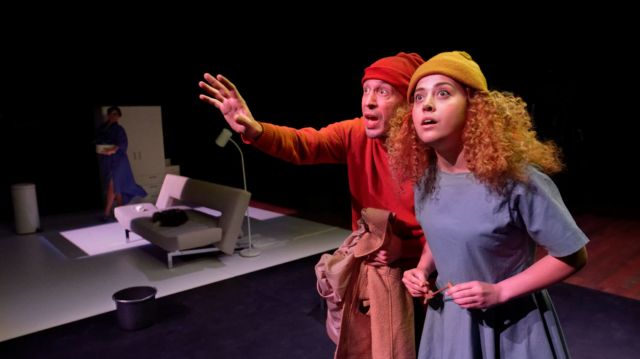
A springboard for emerging opera composers
A notable player in the Dutch chamber opera scene is the production company De Diamant Fabriek, where artistic and business director Sylvia Stoetzer offers emering composers the opportunity to create small works in close collaboration with a director and to develop them into medium-sized productions. She started doing this when she was still programming contemporary music at the Korzo Theatre. One of the first composers she gave a chance to was Kate Moore, who made The Open Road with director Matthias Mooij. Others later included Maria Alejandra Castro Espejo, Petra Strahovnik and Anna Mikhailova. Her husband Benedict Weisser also made several productions under the banner of Diamantfabriek. The largest production was Conversations with my Mother, a collaboration with Nieuw Amsterdams Peil, seven writers - including Jibbe Willems, Abdelkader Benali and Tommy Wieringa - and director Matthias Mooij. With Jibbe Willems, he is now working on a large-scale play as part of Amsterdam’s 750th anniversary celebrations.”
And while this production toured the country, in recent years it has rarely ventured beyond the city limits of Amsterdam. Before the pandemic, De Diamantfabriek staged Madam Koo by composer Meriç Artaç and director Astrid Askvik. De Diamantfabriek has less room for manoeuvre than before, because apart from modest periodic support from Stadsdeel Zuid, the production house depends on project grants. “I have to visit a lot of funds for each production,” says Stoetzer. “It takes a lot of time and is financially risky. Perhaps this will improve with the next round of subsidies, which will start in 2025. But now we can do one new production and one revival a year, two new productions at the most”.
Stoetzer continues to do what she did from the beginning, which is to seek out composers and directors. She likes to pair them with young ensembles. “Since 2020, I have been working with the composition department of the Conservatorium van Amsterdam and the directing department of the Academy for Theatre and Dance. Last September, for example, I was able to realise The Throat Manoeuvre by composer Frieda Gustavs and director Zephyr Brüggen at the Theatre CC Amstel. Frieda was in the final phase of her training.
This article was written as part of the international project Opera: Past, Present, Perfect. The project is funded by Creative Europe - Culture, European Cooperation Projects 2020. The project runs from 1 September 2020 to 1 February 2023. Besides the project leader, the Music, Opera and Theatre Organisation MOTO, the other project partners are New Geneco from Amsterdam, the Young Musician International Association of Georgia from Tbilisi (Georgia), the University of Donja Gorica in Podgorica (Montenegro) and the Duško Radović Theatre from Belgrade (Serbia).